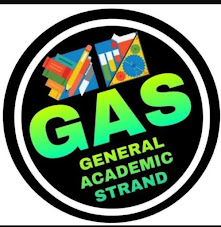Why do you choose GAS ?

GAS is a Senior High School strand that takes on a generalist approach in preparing students for college. It covers various disciplines like Humanities, Social Sciences, Organization, and Management. Since GAS does not specialize in any strand, you are free to choose any college degree program under the three other strands based on the elective you will choose. Moreover, a possible course to pursue from this strand is Education. While other strands are career-specific, GAS is great for students who are still undecided on which track to take. You can choose electives from different strands. GAS subjects are a mix of specialized subjects from the other three strands: HUMMS, ABM, STEM.

